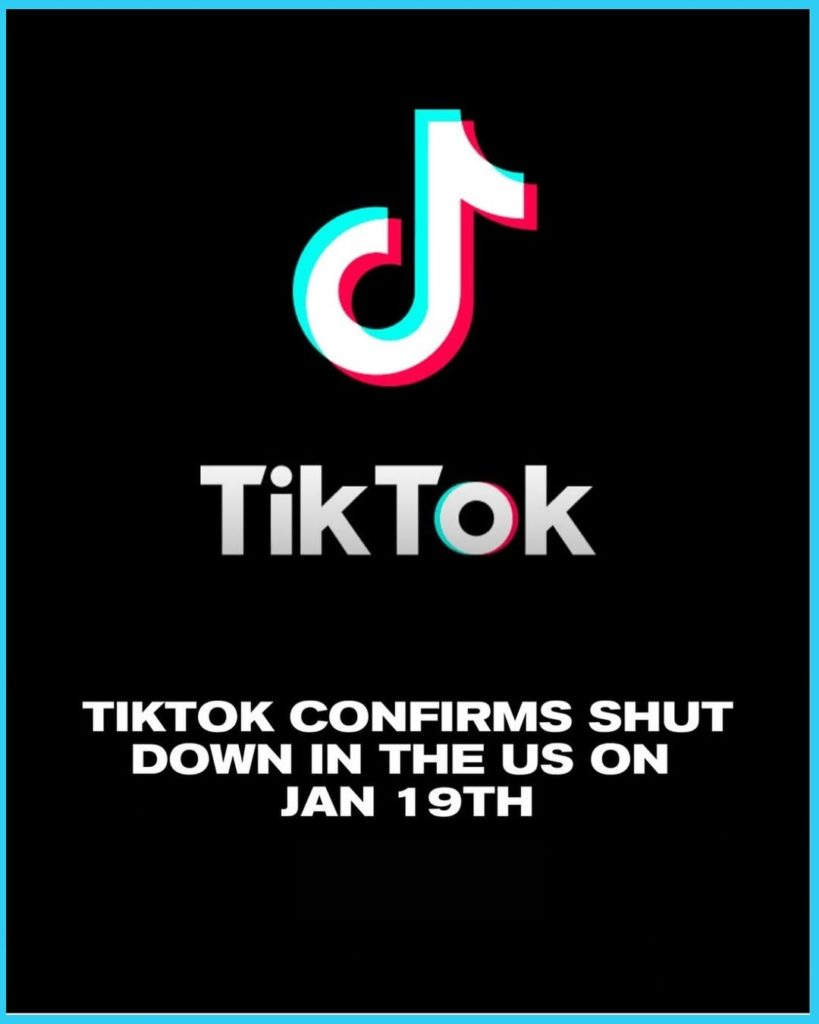Haitian Fam and TikTok users across the United States may soon lose access to the popular social media platform. Unless the Supreme Court steps in to delay or overturn new legislation, TikTok could be shut down nationwide as early as January 19.
This unprecedented situation stems from a law signed by President Joe Biden in 2024, which mandates that ByteDance, TikTok’s Chinese parent company, sell the app’s U.S. operations to an American-based buyer. If ByteDance fails to comply, the law requires app stores to remove TikTok and restricts internet access to the platform.
The Controversy: Privacy vs. Freedom
The law’s supporters argue that TikTok poses a national security risk, alleging that the Chinese government could exploit the app to collect data on American users. Lawmakers have expressed concerns about potential surveillance and influence operations targeting U.S. citizens through the platform.
In response, TikTok has filed an emergency motion with the Supreme Court, asserting that the ban violates the First Amendment and undermines the financial interests of American creators and businesses. The platform also denies allegations of sharing data with the Chinese government.
“This law is not just about TikTok; it’s about the broader implications for free speech and the digital economy,” said Vanessa Pappas, TikTok’s Chief Operating Officer.
The Supreme Court Steps In
Oral arguments before the Supreme Court are scheduled for January 10, just days before the ban is set to take effect. Legal experts believe the case could set a major precedent for the intersection of national security and digital rights.
Kevin O’Leary and Other Buyers Eye TikTok
In the midst of the controversy, prominent investors like Shark Tank’s Kevin O’Leary have expressed interest in acquiring TikTok’s U.S. operations. O’Leary’s January 6 statement highlighted the app’s immense value to American users and businesses.
“This isn’t just about buying TikTok’s U.S. assets,” O’Leary said. “It’s about protecting the privacy of 170 million American users, empowering creators and small businesses, and building a platform that prioritizes people over algorithms.”
However, O’Leary acknowledged the political complexities of the deal, suggesting that securing TikTok’s future might require cooperation from President-elect Donald Trump, who takes office on January 20.
What’s at Stake for Haitian Creators?
The potential ban has raised alarm among creators, small business owners, and communities like Haitian Americans, who rely on TikTok as a platform for connection and cultural expression. TikTok has become a vital space for Haitian creators to share stories, promote businesses, and amplify social causes.
For small business owners and influencers, TikTok’s unique algorithm has been a game-changer, offering an unparalleled opportunity to reach global audiences. A ban would not only disrupt this dynamic but could also lead to significant economic losses for many users.
What’s Next?
As the January 19 deadline looms, the fate of TikTok in the United States remains uncertain. The Supreme Court’s decision could either cement the platform’s ban or pave the way for a new chapter under U.S. ownership.
For Haitian Fam and the wider TikTok community, the stakes are high. Whether through legal action or a last-minute sale, millions are hoping for a resolution that allows TikTok to continue fostering creativity, connection, and cultural exchange.
Stay tuned as we follow this evolving story, and let us know in the comments how a potential TikTok ban could impact you or your community.
Share this:
- Click to share on Pinterest (Opens in new window)
- Click to share on Twitter (Opens in new window)
- Click to share on Facebook (Opens in new window)
- Click to share on WhatsApp (Opens in new window)
- Click to email a link to a friend (Opens in new window)
- Click to share on LinkedIn (Opens in new window)
- Click to share on Tumblr (Opens in new window)
- Click to share on Reddit (Opens in new window)
- Click to print (Opens in new window)

























![Bring the Caribbean to your kitchen.
Discover bold, time‑saving flavor with Épis of Haiti spice blends—perfect for authentic island dishes or a vibrant twist on your favorites. Taste tradition, transform your cooking. [ @episofhaiti ]
Explore the full collection at episofhaiti.com
#AD #lunionsuite #haitianamerican #episofhaiti](https://scontent.cdninstagram.com/v/t51.75761-15/491432320_18506758480023307_6411904492707133407_n.jpg?stp=dst-jpg_e35_tt6&_nc_cat=109&ccb=1-7&_nc_sid=18de74&_nc_ohc=mg9gOnjwWSMQ7kNvwHmwuoi&_nc_oc=AdnLNy2-7vf5do1dbVcTviEujqlBywo5qZEsDvrjqIUKPK8B30RjrhBkQIPsoMb2IJc&_nc_zt=23&_nc_ht=scontent.cdninstagram.com&edm=AM6HXa8EAAAA&_nc_gid=syCC8XULFxN4FsUXXLnOWA&oh=00_AfHX4Ri8YeTbbqweN0jY_gO-67KxB-_LnqL6qZLGMia1tw&oe=6810AA91)





